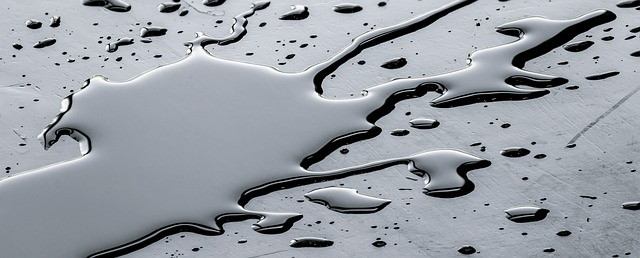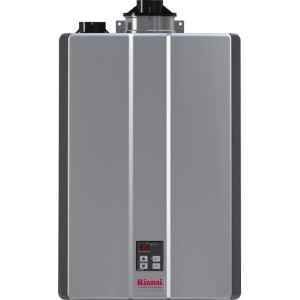- Home
- Tankless water heaters
- Leaks in tankless water heaters
Safeguard Your Home: Detecting and Repairing Leaks in Tankless Water Heaters

Experiencing a hiccup with your modern, energy-efficient tankless water heater?
While these advanced heaters are designed for efficiency and a longer lifespan, they're not invincible. Understanding the ins and outs of leaks in tankless water heaters can be the key to keeping your system running smoothly.
Many have been in your shoes, and there's a wealth of knowledge to tap into. Whether you're new to the world of tankless water heaters or have had one for years, leaks can pop up for a variety of reasons.
In the next sections, we'll break down why these leaks happen, how you can identify their sources, and steps to take for a watertight solution. Rest easy, help is on the way to ensure warm, uninterrupted showers and peace of mind!
Understanding leaks in tankless water heaters
Causes
Leaks in tankless water heaters can arise from a variety of factors. Here are some:
- Old age: Like many household appliances, water heaters have a lifespan. As they age, various components can corrode, weaken, and eventually fail. If your heater is more than 10-15 years old, consider getting it checked and possibly replaced. Keep in mind, tankless water heaters boast a lifespan of over 20 years, though the most extended warranty you'll find typically caps at 15 years.
- Loose connections: Sometimes, the various pipes, parts, and connections inside the heater might become loose due to vibrations, mechanical stress, or temperature fluctuations.
- Internal damage: Damage inside the heater, like cracks in the heat exchanger, pipes, or damaged valves, can be a culprit for leaks. Such internal issues are not always visible right away but can show up after prolonged use or if the heater experiences a sudden shock.
- High water pressure: When the water pressure is too high for the tankless water heater to handle, it might cause parts of the heater to fail and start leaking. Regularly checking the water pressure and ensuring it’s within safe limits can help prevent this.
- Worn-out seals or gaskets: Over time, the seals or gaskets in your water heater can deteriorate. Regular wear and tear, exposure to hard water, or corrosive elements in the water can speed up this wear.
Detecting the leak: Signs and symptoms
Identifying a leak early can save a lot of hassle. Here are some of the most common signs and symptoms of a leaky tankless water heater:
- Water puddles: Finding unexpected water puddles near the heater is a clear red flag. Water doesn't appear out of nowhere. If you notice damp spots or pools of water under or around your heater, it's a strong indication of a leak. It's essential to address this promptly to prevent potential damage to your home.
- Dripping sound: The sound of water can be soothing, but not when it’s an unwanted dripping sound from your water heater. If you ever hear an unexpected drip-drip sound when you're near your heater, it's time to investigate. Even if you don’t see water right away, that sound usually means a leak has started.
- Decreased performance: If your showers are getting colder or it’s taking longer for water to heat up, it could be a symptom of a leak. When this happens, the unit can struggle to work efficiently.
- Higher water bills: Money down the drain, literally! A hidden leak can waste a lot of water over time. If you notice your water bills creeping up without any noticeable increase in usage, you might have a problem.
Steps to take when a leak is detected
Safety should always be the priority. If you suspect a leak, ensure the power to the tankless water heater is turned off. This could mean shutting off the electrical breaker or the gas supply.
Next, turn off the water supply to stop the flow. If you feel it's necessary and safe, drain the unit. Documenting the leak through photos can be invaluable, especially if you're within a warranty period or need professional assistance.
DIY fixes vs. when to call a professional
Some leaks, especially those from loose connections, can be fixed with a simple tightening using a wrench. However, it's essential to recognize when a problem is beyond a DIY fix.
If a leak stems from internal damage, it's wise to consult a professional. Regular inspections and maintenance, whether DIY or by experts, can extend the life of your water heater and prevent many common issues.
How to repair a leak in tankless water heaters: DIY tips
- Turn off the power: Before anything, always prioritize safety. If your heater uses electricity, turn off the breaker. If it's gas-powered, turn off the gas supply. It ensures you won't have any unexpected surprises while you’re investigating or trying to fix the problem.
- Check for obvious leaks: With the power off, visually inspect your heater. Do you see any dripping water? Is there a specific area that's wetter than others? Noting these areas can give you a good starting point for your repairs.
- Tighten any loose parts: Using a wrench, gently check all visible connections. If anything feels loose, give it a gentle but firm tighten. Be careful not to overtighten as that can cause more damage.
- Replace worn-out seals or gaskets: If you find that the seals or gaskets are the culprits, carefully remove the old ones. Take them to a hardware store to find exact replacements, and then install the new ones. If you're unsure about this step, consider seeking help.
- Lower the water pressure: Using a pressure gauge, check the water pressure in your home. If it's too high, you can install a pressure reducing valve to bring it down to safe levels.
- Call a professional: When in doubt, or if the problem persists, it's always best to bring in a professional.
Prevention: Tips to minimize future leaks
Proactive care is the best approach.
If you live in an area with hard water, consider installing a water softener to reduce mineral build-up. Also, draining and flushing the system can periodically remove this sediment, keeping the heater in top condition.
Monitoring and maintaining the right water pressure can prevent undue strain on your heater.
Regular check-ups, especially before winter in colder areas, can identify potential problems before they escalate.
When replacing parts or adding components, ensure they're of high quality and compatible with your specific tankless water heater model. Cheaper, off-brand parts might not fit perfectly and could lead to leaks.
Conclusion
Taking care of your water heater is crucial to ensure that it continues to meet your home’s hot water demands efficiently.
Recognizing common problems, such as a leak in tankless water heaters, and being informed about their causes and solutions is vital. Acting swiftly when such issues arise and embracing preventive measures can make a world of difference in the heater's longevity and performance.
A proactive approach not only prevents potential disruptions but also ensures that you enjoy the comfort and peace of mind that every homeowner deserves.
FAQ
How can I prevent my tankless water heater from freezing and causing leaks in the winter?
How can I prevent my tankless water heater from freezing and causing leaks in the winter?
Ensure your water heater is adequately insulated. Some models also come with freeze protection systems. In extreme cold, consider draining the unit if it won't be in use for an extended period.
Can I take a shower if my water heater is leaking?
Can I take a shower if my water heater is leaking?
If your water heater is leaking, it's advisable to avoid taking a shower until the issue is addressed. A leaking heater can present potential electrical hazards, especially if water comes into contact with electrical components. Additionally, for gas-powered heaters, a water leak might hint at a more serious underlying problem that could also involve a gas leak. Until a professional has inspected and rectified the issue, it's best to prioritize safety and refrain from using the heater for showers or any other purpose.
- Home
- Tankless water heaters
- Leaks in tankless water heaters






